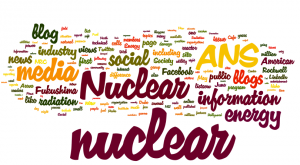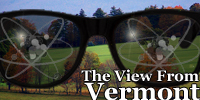The Carnival of Nuclear Energy Bloggers is up at NEI Nuclear Notes
This post is the collective voice of blogs with legendary names which emerge each week to tell the story of nuclear energy.
 If you want to hear the voice of the nuclear renaissance, the Carnival of Nuclear Energy Blogs is where to find it.
If you want to hear the voice of the nuclear renaissance, the Carnival of Nuclear Energy Blogs is where to find it.
Past editions have been hosted at Yes Vermont Yankee, Atomic Power Review, ANS Nuclear Cafe, Idaho Samizdat, NEI Nuclear Notes, Next Big Future, and CoolHandNuke, as well as several other popular nuclear energy blogs.
The publication of the Carnival each week is part of a commitment by the leading pro-nuclear bloggers in North America that we will speak with a collective voice on the issue of the value of nuclear energy. While we each have our own points of view, we agree that the promise of peaceful uses of the atom remains viable in our own time and for the future.
If you have a pro-nuclear energy blog, and would like to host an edition of the carnival, please contact Brian Wang at Next Big Future to get on the rotation.
This is a great collaborative effort that deserves your support. Please post a Tweet, a Facebook entry, or a link on your Web site or blog to support the carnival.
# # #



 When I am reading an article or a blog post, I always appreciate when the writer places the immediate events into a bigger context. I always try to do this myself. Putting Vermont Yankee issues in context, however, is like facing a huge mountain range. There is always another set of hills beyond this one. Which mountain? Which context? Where to start?
When I am reading an article or a blog post, I always appreciate when the writer places the immediate events into a bigger context. I always try to do this myself. Putting Vermont Yankee issues in context, however, is like facing a huge mountain range. There is always another set of hills beyond this one. Which mountain? Which context? Where to start? Do you know someone who has worked tirelessly toward integrating young members into the American Nuclear Society? Do you know someone in the ANS Young Members Group who has demonstrated continued overall excellence in many areas? Now is your chance to nominate that person for national recognition of their efforts.
Do you know someone who has worked tirelessly toward integrating young members into the American Nuclear Society? Do you know someone in the ANS Young Members Group who has demonstrated continued overall excellence in many areas? Now is your chance to nominate that person for national recognition of their efforts.
 On February 11, 1939, a Letter to the Editor titled
On February 11, 1939, a Letter to the Editor titled